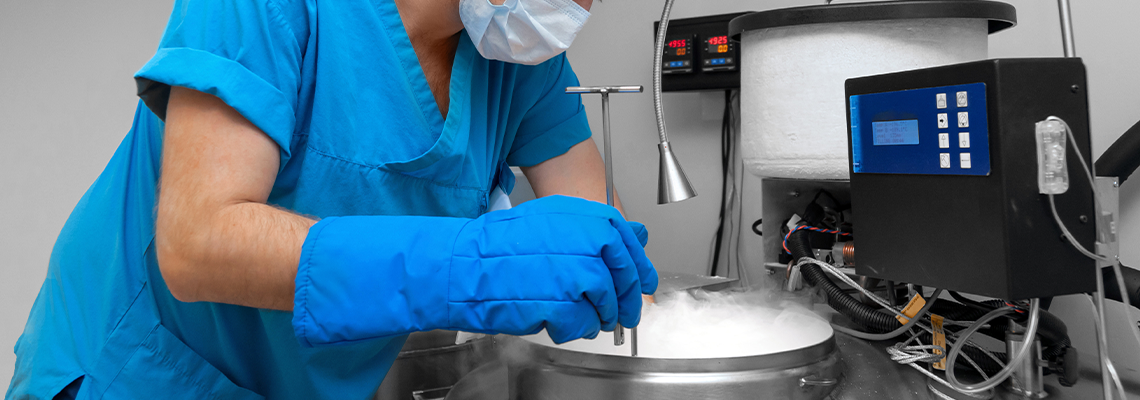Estate planning is an essential process that allows individuals to prepare for the future, addressing various financial, legal, and medical needs.
One Child at a Time

Sperm Donation FAQ
Parenthood is a cherished goal for many, and sperm donation offers an important option for turning that goal into reality. However, this process raises important questions about legal rights, responsibilities, and agreements. Whether you’re considering sperm donation to grow your family or helping someone else do so, understanding the legal aspects is essential.
My firm, the Law Office of Karen M. Holman in Winchester, Virginia, is here when questions about legal rights, obligations, and family law concerns arise. Whether you’re considering sperm donation as a donor or recipient, having answers is essential. This FAQ explores common questions about sperm donation and what to consider when building or growing a family.
What Is Sperm Donation?
Sperm donation involves a man voluntarily providing sperm to help someone else conceive a child. This process can occur through a sperm bank, a fertility clinic, or a private arrangement. While the procedure might seem straightforward, it brings various legal and emotional considerations.
Key Points About Sperm Donation:
Anonymous donation: The donor’s identity isn’t disclosed to the recipient or the child.
Known donation: The donor’s identity is known, and the donor may have a relationship with the recipient or child.
Medical screening: Donors typically undergo extensive health screenings to minimize genetic or infectious risks.
Understanding these options helps both donors and recipients make informed decisions about which method aligns best with their goals. Each approach carries its own set of legal, medical, and relational dynamics, making proper planning essential.
Are Sperm Donors Legally Considered Parents?
The legal relationship between a sperm donor and the child isn’t always straightforward. In most cases, sperm donors aren’t considered legal parents. However, this largely depends on the following factors:
State laws: Laws vary regarding the rights and responsibilities of sperm donors.
Written agreements: Legal agreements can clarify the donor’s role and parental rights, often negating any claim of legal parentage.
Method of conception: Conception through a licensed facility often provides more legal protection than private arrangements.
Clarifying the donor’s legal status upfront avoids potential disputes and protects all parties. Consulting with a family lawyer helps make sure that agreements align with state laws and reflect everyone’s intentions.
What Rights Do Recipients Have?
Recipients have significant rights in sperm donation arrangements. These rights often depend on legal agreements and the structure of the arrangement. Key recipient rights include:
Choice of donor: Recipients can select donors based on criteria such as health, physical traits, or education.
Legal protections: Agreements can safeguard recipients from donor claims of parental rights.
Medical history access: Recipients generally have access to the donor’s medical history for informed decision-making.
Recipients should exercise these rights thoughtfully, prioritizing legal documentation and open communication with donors. Proper planning is key to a smoother process and to protecting parental authority.
Do Sperm Donors Have Financial Obligations?
In most cases, sperm donors aren’t financially responsible for children conceived using their sperm. However, situations without a formal agreement or those involving private arrangements may lead to disputes. To avoid misunderstandings:
Create a clear legal agreement: This should explicitly state that the donor has no parental or financial obligations.
Work through licensed facilities: These often provide agreements that reinforce the donor’s lack of responsibility.
Establishing the donor’s financial responsibilities (or lack thereof) helps prevent legal disputes and fosters a mutually agreed-upon understanding between all parties.
Can Sperm Donors Change Their Minds About Involvement?
Once a legal agreement is signed, sperm donors typically can’t change their minds about their involvement or rights. However, issues can arise in private arrangements where no agreement exists. To protect everyone involved:
Consult a lawyer: A written contract should outline the donor’s lack of rights and responsibilities.
Document all arrangements: Clear documentation helps resolve future disputes.
These steps create security for recipients and donors alike, making sure that roles and responsibilities are clearly defined and upheld over time.
How Does Sperm Donation Impact LGBTQ+ Families?
Sperm donation is a valuable option for LGBTQ+ families looking to grow. Same-sex female couples, single parents, and transgender individuals often use sperm donation to conceive. While the process is similar to that of heterosexual families, there are unique considerations:
Co-parenting agreements: These are often used if a known donor is involved and wishes to play an active role in the child’s life.
Second-parent adoption: In some cases, the non-biological parent may need to adopt the child to establish parental rights legally.
LGBTQ+ families can benefit from clear legal steps tailored to their unique needs. Establishing proper documentation and securing parental rights early helps protect family dynamics.
What Are the Legal Steps Involved in Sperm Donation?
Legal steps in sperm donation help protect both donors and recipients. These steps include:
Drafting agreements: Clearly outline the donor’s role and any limitations on their rights or responsibilities.
Working through licensed facilities: Clinics and sperm banks often provide agreements that comply with state laws.
Addressing parental rights: Establish whether the donor will have any rights or responsibilities, especially in known donor arrangements.
Following these steps assures all parties have clear expectations and that potential legal risks are addressed from the start.
What Should Be Included in a Sperm Donation Agreement?
A comprehensive sperm donation agreement is essential for avoiding disputes. Key elements often include:
Donor rights: Clearly state that the donor has no parental rights or responsibilities.
Recipient rights: Define the recipient’s full parental authority.
Future contact: Address whether the donor will have any contact with the child.
Medical disclosures: Include all relevant health information from the donor.
These agreements protect everyone involved and serve as a crucial reference point if misunderstandings arise. Working with a lawyer to draft these documents is strongly recommended.
Is Anonymity Always Guaranteed?
Anonymity in sperm donation isn’t always guaranteed, particularly with advancements in DNA testing and online ancestry services. These tools can reveal genetic connections, potentially leading to unexpected contact between donors and children. To address this:
Discuss expectations upfront: Donors and recipients should agree on whether future contact is acceptable.
Include terms in the agreement: Specify the level of anonymity or potential openness desired.
By proactively discussing and documenting anonymity preferences, all parties can align expectations and reduce the risk of future conflicts.
How Does State Law Impact Sperm Donation?
State laws significantly influence sperm donation arrangements. While most states offer protections for anonymous donors, known donor arrangements often require additional legal steps. Recipients and donors should understand:
Parental rights laws: Some states automatically waive donor rights if the arrangement occurs through a licensed facility.
Inheritance laws: In some cases, children conceived through donation may still have inheritance rights unless explicitly waived.
Understanding state-specific laws makes sure that agreements comply with legal standards and helps avoid unexpected legal issues down the line.
What Are the Risks of Private Sperm Donation?
Private sperm donation arrangements can bypass medical facilities but often carry greater legal and medical risks. These risks include:
Unclear legal agreements: Without formal documentation, disputes about parental rights may arise.
Health concerns: Private donations may not involve the same rigorous medical screening as those through licensed facilities.
Emotional challenges: Personal relationships between donors and recipients can complicate boundaries.
To mitigate these risks, formalize arrangements through legal agreements and consider working with licensed professionals when possible.
How Does Sperm Donation Intersect With Family Law?
Sperm donation intersects with family law in several critical ways, from parental rights to inheritance issues. Key intersections include:
Legal parentage: Determining whether the donor is considered a legal parent.
Custody disputes: Addressing potential disputes in known donor arrangements.
Child support obligations: Making sure that donors aren’t held financially responsible.
Legal guidance is essential in these situations to safeguard parental rights, clarify responsibilities, and prevent disputes.
What Happens If A Dispute Arises?
Disputes involving sperm donation can involve questions about parental rights, financial obligations, or child custody. If disagreements arise:
Review existing agreements: Clear, legally binding agreements are often the first line of defense.
Seek mediation or legal counsel: A lawyer can help resolve disputes and clarify legal responsibilities.
Resolving disputes often requires professional legal assistance to uphold the terms of agreements and protect the interests of everyone involved.
Contact Me Today
As an experienced family law attorney, I serve clients in Winchester, Virginia, Harrisonburg, Staunton, Woodstock, Strasburg, Stephens City, or anywhere across Northern Virginia and the Shenandoah Valley. Contact my firm, The Law Office of Karen M. Holman, to protect your family’s future today.
RECENT POSTS
Adoption is one of the most rewarding ways to grow a family, but it’s also a legal process that can bring questions, uncertainties, and emotions. At The Law Office of Karen M. Holman, I’m dedicated to guiding families through each step of this journey.


